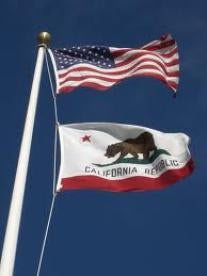Employers with operations in California should ensure their policies and practices are in compliance with the state’s new employment laws going into effect on January 1, 2014. The new laws will affect the day-to-day operations of many businesses.
Discrimination
An amendment to the California Fair Employment and Housing Act (“FEHA”), Cal. Civ. Code § 12920 et seq., adds military or veteran status as a class protected from employment discrimination. The law defines “military or veteran status” as “a member or veteran of the United States Armed Forces, United States Armed Forces Reserve, the United States National Guard, and the California National Guard.” The new law would allow employers to inquire regarding an applicant’s or employee’s military or veteran status for the purpose of awarding a veteran’s preference as permitted by law. For more information, see Military and Veteran Status Now Protected under California Employment Discrimination Law.
Absences
Volunteer firefighters, reserve peace officers, and emergency rescue personnel in California will be entitled to temporary leaves of absence under an amendment to the California Labor Code (Labor Code Section 230.4). Employers with at least 50 employees must provide temporary leaves of absence of up to 14 days per calendar year to employees who serve as volunteer firefighters, reserve peace officers or emergency rescue personnel for the purpose of engaging in fire, law enforcement or emergency rescue training. For more information, see California Leave Law Expanded to Cover Emergency Rescue Personnel and Reserve Peace Officers.
A new law prohibits employers from discharging, discriminating or retaliating against employees who are victims of certain offenses for taking time off from work to appear in any court proceeding in which their rights are in issue. Employees who are discharged or otherwise discriminated against because they have taken such time off may file a complaint with the state Division of Labor Standards Enforcement and are entitled to reinstatement and reimbursement for lost wages and benefits for violations. For more information, see Employment Protections for Crime Victims under New California Law.
Protection from discrimination and retaliation has been extended to employees who are victims of stalking under an amendment to the California Labor Code, Sections 230 and 230.1. The prior version of the law covered only victims of domestic violence and sexual assault. The amended law prohibits employers from discharging, discriminating against, or retaliating against employees who need to take time off from work to address issues related to domestic violence, sexual assault, and stalking. It also prohibits discrimination and retaliation based on the employee’s status as a victim of domestic violence, sexual assault, or stalking and requires employers to provide certain accommodations for the safety of such victims. For more information, see New California Law Protects Stalking Victims from Discrimination and Retaliation.
Pay
Private individuals employing domestic workers in California, such as childcare providers and caregivers, must pay such employees overtime at a rate of time-and-a-half for all hours worked in excess of nine in one day or more than 45 hours in one week. The new law will expire on January 1, 2017, unless it is extended. For more information, see Domestic Workers to Receive Overtime Pay under California Law.
California law provides that an employee should receive one hour of pay for not receiving rest or meal periods. New law expands the one hour of pay to missed “recovery periods” and applies to any meal, rest or recovery period mandated by applicable statute, regulation, standard, or order of the California Industrial Welfare Commission, the Occupational Safety and Health Standards Board, or the Division of Occupational Safety and Health. A “recovery period” is “a cool-down period afforded an employee to prevent heat illness.” For more information, see California Governor Signs SB 435 Which Expands the One Hour Pay Penalty in Labor Code 226.7 to Missed ‘Recovery Periods.’
New law excludes from gross income, for state personal income tax purposes, any amount received by an employee from an employer to compensate for additional federal income taxes incurred by the employee from employer-provided health benefits because of the federal government’s failure to recognize same-sex spouses or domestic partners as the employee’s spouse for federal income tax purposes. This exclusion also includes any “grossed-up” amounts the employer provided to offset any taxes incurred by the employee on such reimbursement. The new law covers same-sex couples who are married or registered domestic partners whose employers reimburse them for federal taxes the couples pay on health care benefits for their partner and dependents. The exclusion applies to tax years 2013 to 2018. For more information, see New California Law Excludes Certain Health Care Reimbursements from Employees’ State Taxable Income.
Litigation
A revision to the definition of sexual harassment under the California Fair Employment and Housing Act makes clear that employees who assert claims of sexual harassment need not show the harassment is motivated by sexual desire. For more information, see California Sexual Harassment Law Amended, Sexual Desire Not Required.
The California Labor Code is amended to limit employers’ ability to recover attorney’s fees and costs in actions for nonpayment of wages. Previously, California case law left open the possibility that Labor Code Section 218.5 permits the prevailing party, either the employee or employer, to recover fees and costs. Under the amendment, employers can recover their defense costs only if they prove that an employee brought the action in “bad faith.” For more information, seeNew California Law Limits Successful Employers’ Right to Recover Fees and Costs in Wage Cases.
Beginning July 1, 2014, the state’s hourly minimum wage rate will increase by $1.00, to $9.00 an hour. Another increase of $1.00 an hour will be effective January 1, 2016. For more information, please see California Passes Increase to State Minimum Wage; What Else is Affected?







 i
i

